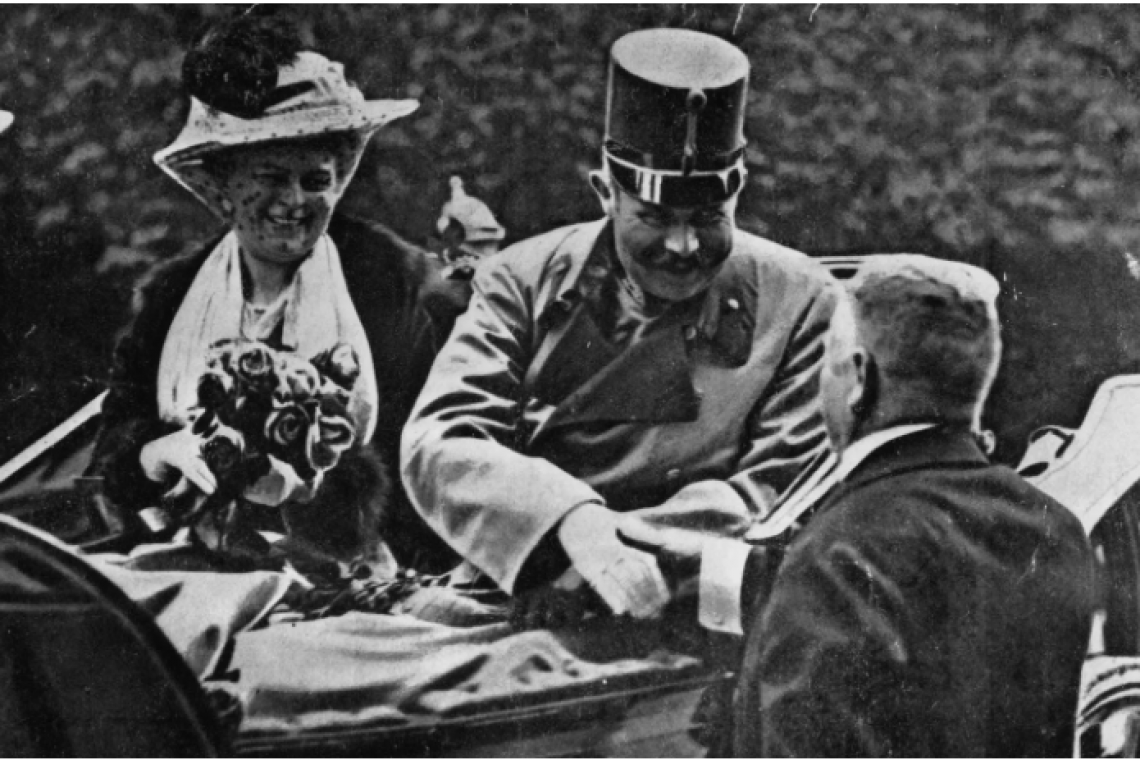June 28, 1914, was the date when Archduke Franz Ferdinand was assassinated in Sarajevo. His killing started World War One.
On June 28, 1914, Franz Ferdinand was in the Austro-Hungarian province of Bosnia and Herzegovina accompanied by his wife, Sophie. He was there as inspector general of the imperial army.
The visit was not a popular one. Balkan politics were turbulent, and the neighboring Kingdom of Serbia coveted Bosnia. Moreover, the date chosen for this imperial visit and Hapsburg show of force was June 28, a black date in Serbian history: it was the anniversary of the Turkish victory over Serbia at the Battle of Kosovo in 1389. This fanned the flames of dissent among Serbian nationalists even further.
The royal couple was travelling in a motorcade through Sarajevo in an open-topped car, ignorant of the fact that several would-be assassins awaited along the route of their preannounced stops.
Shortly after 10 AM, amid cheering crowds lining the wide avenue called Appel Quay, one of the attackers, Nedjelko Cabrinovic, threw a grenade at the royal couple’s car. The bomb bounced off the back of the vehicle and exploded behind them, injuring members of the entourage who were in the next car and peppering bystanders with shrapnel.
After completing the planned reception at City Hall, the shaken royal couple insisted on changing their schedule and visiting the hospital to check on one of the officers injured in the morning attack.
Confusion among the drivers in the motorcade followed, with the drivers starting off in the wrong direction, down the very avenue where the conspirators were still present. When the royal motorcade entered a side street and stopped to turn around, a compatriot of Cabrinovic, 19-year-old Gavrilo Princip, seized his opportunity.
Approaching the royal couple’s open car, he shot both Franz Ferdinand and Sophie with a Browning pistol. The driver of the couple’s car then sped off for medical help. Sophie died en route and Franz Ferdinand died shortly after.
Princip tried to shoot himself but was apprehended by bystanders. All of the conspirators were eventually found and arrested. Exempted from the death penalty because of his young age, Princip was sentenced to 20 years in prison, where he died from tuberculosis in 1918.
Anti-Serb protests and riots followed throughout Austria-Hungary in the wake of the assassination.
One month later, on July 28, Austria-Hungary declared war on the country seemingly behind the murders, Serbia. This set the Triple Alliance (Austria-Hungary, Germany, and Italy) against Serbia’s allies in the Triple Entente (Russia, France, and Britain). Momentum became unstoppable, sparking one of the deadliest conflicts in history—World War I.


